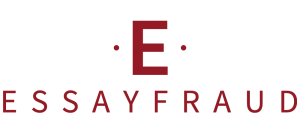How to write a reflection paper: a full guide with free examples
Reflection paper is a type of paper that asks you to express your opinion on a certain topic. This is different from paper reports, where you are only asked to provide information and facts. Reflection papers allow you to combine your knowledge and experience with personal opinions. To start the writing process, first make sure that you have read all the material that is relevant to the topic you are going to cover. This is important so that you can provide a precise and in-depth view of the topic. After that, make a list of the main points that you want to convey in your reflection paper. Make brief notes about each of these main points so it will be easy for you to remember when you start writing later. Next, write the essence or brief summary of what will be conveyed in your reflection paper. This digest should contain the main points you want to convey and also provide an overview of the contents. This gist will help readers to more easily understand the contents of your paper without having to read it in detail. After that, start writing the body of your essay by making short paragraphs containing your arguments one by one.

What is reflection paper
It can be a reflection about your life, your experiences, or how you respond to something. Resumes are one of the best ways to showcase your experience and skills. This is also an effective way to get other people interested in you. Therefore, it is important that you make sure that your resume is well written and reflects your personality and goals. To create the perfect resume, make sure that the information you provide is accurate and up-to-date. If any information is irrelevant or outdated, delete it.

Also make sure that the format is easy for readers to read and understand. Use the right fonts, colors, and writing style to make your resume more attractive. Also, make sure that your resume includes details about your education, work experience, professional certifications, technical expertise, and other accomplishments. If possible, also add examples of projects or work that you have completed before. This will give readers an idea of whether or not you are a good fit for the position they are offering. When writing your resume, make sure that any information presented is accurate and up-to-date. Don’t forget to include professional references if needed. These references will give the reader an idea of how you have done your job in the past and how you can do well in the future. When finished writing your resume, be sure to look at it carefully before sending it to your target company.
Need help WRITING RESUMES?
Just submit your requirements and choose a resume writer. That’s all we need to write a winning resume for you.
Reflection paper format
The format of a reflection paper generally consists of several sections. First, you should write an introduction explaining the topic you are going to cover. This introduction should also have a purpose or reason why you chose this topic to discuss. After that, you have to present your thoughts and ideas about the topic. This is the main part of your reflection paper and here you should provide a detailed account of what you have learned and how it relates to your life experiences. The end of a reflection paper usually contains a conclusion which is a summary of all the thoughts and ideas that you have written before.
1. Title: Create a title that describes the content of your reflection. 2. Background: Describe the background of the topic you are reflecting on. 3. Main Thoughts: Write down your main thoughts about the topic, including how you feel about it and what you have learned. 4. Conclusion: Summarize your main thoughts and provide a clear conclusion about the topic. 5. References: If you use other sources to help with your reflection, include references in this section.
How to Write a Reflection Paper: A Step-by-Step Guide
Writing a reflection paper involves expressing your thoughts, experiences, and insights about a particular topic, event, or concept. Here’s a step-by-step guide to help you write an effective reflection paper:
Step 1:Create a main theme I’ve learned a lot from my experience with the topic of interpersonal communication. I realized that effective communication is one of the best ways to build strong and valuable relationships. I also recognize that poor communication can destroy relationships and make people feel uncomfortable. I believe that listening carefully, speaking honestly, and expressing feelings openly are the three important things to do to build a good relationship. By doing this, I have learned how best to interact with other people and how to best manage difficult situations.
Step 2:Brainstorm ideas and experiences you have related to your topic “When I look back, I realize that all of the experiences and hardships I have faced have shaped who I am today. I thank you for all the things that have helped me become a better and stronger person.”

Step 3:Analyze how and why these ideas and experiences have influenced your interpretation of your theme The idea or experience I have from the last step is to use technology to help improve students’ skills and knowledge. I agree with this because technology can help students learn faster and more effectively. Technology can also make the learning process more interactive, so students will be more interested in learning. In addition, technology can also enable students to interact with material virtually, so they can get a better understanding of the topics they are studying. Thus, technology can help students achieve better results in the classroom.
Make connections between your observations, experiences and opinions To form a cohesive picture, I’ll start by identifying the main ideas related to my theme. I’m going to find out how these ideas interact and how they can be combined to form a comprehensive picture. After that, I’ll try to identify the possible assumptions behind the ideas and see if there’s another way to look at it. By doing this, I can break down assumptions and build new insights about my theme. Finally, I’ll combine all of this information together to form a cohesive picture of my theme. 1. Learning Experience: This is a reflection paper that asks students to tell about their learning experiences, including what they learned, how they succeeded or failed, and how that experience influenced the way they think. 2. Social Skills: This is a reflection paper that asks students to tell how they communicate with others, how they solve problems, and how they work in teams. 3. Academic Skills: This is a reflection paper that asks students to tell about their academic abilities, including what they have learned in school and how they have applied their knowledge in real situations. 4. Creativity and Innovation: This is a reflection paper that asks students to tell about how they think creatively and innovatively, including the new ideas they have created and how they apply these ideas in real situations.
Writing tips
- Short and sweet – Most reflection papers are between 250 and 750 words. Don’t go off on a tangent. Only include relevant information.
- Clear and concise – Make your paper as clear and concise as possible. Use a strong thesis so your essay can follow it with equal force.
- Keep the tone right – Use a professional and academic tone – even if the writing is personal.
- Cite your sources – Try to cite authoritative sources and experts to back up your personal opinion.
- proofreading. – Not only do you have to correct spelling and grammar mistakes, but you have to correct to focus on your organization as well. Answer the questions presented in the Introduction.
Free reflection paper samples
1. Begin by writing about what you have learned from your experience. These can be things that are good or bad, and also how you respond to them.
2. Describe how that experience influenced your perspective on a particular topic.
3. Give concrete examples of how you have used the knowledge gained from this experience to improve your life.
4. Write down some of the key points you’d like to remember from the experience, and how they might help others who may be in a similar situation.
5. Describe how this reflection has helped you learn more about yourself and the world around you.
